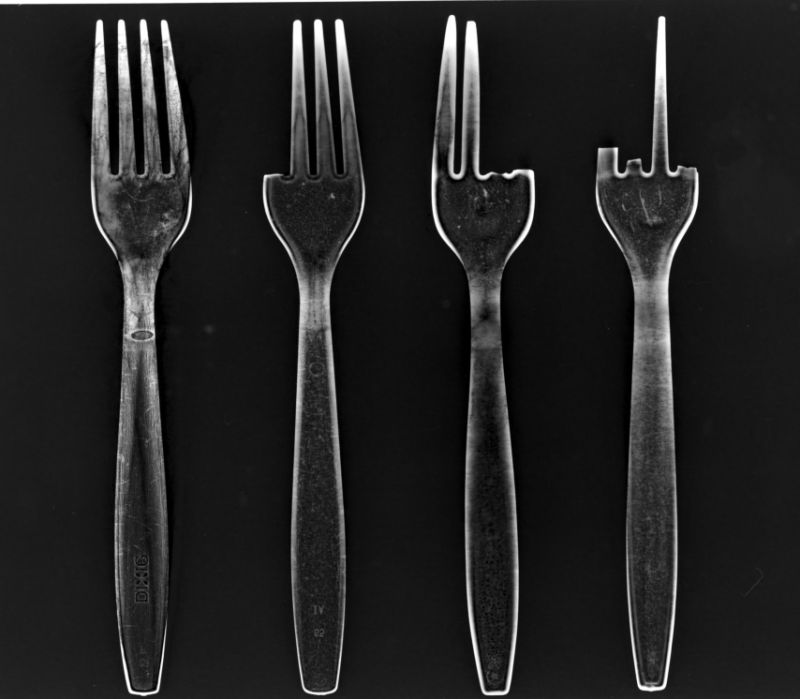
<a href="http://www.flickr.com/photos/presley_m/365558287/sizes/o/in/photostream/">Presley</a>/Flickr
A study financed by plastics manufacturer Procter & Gamble has found that biodegradable plastics emit methane faster than other kinds of trash. The study was carried out by researchers from North Carolina State University and published in the journal Environmental Science & Technology.
Researchers focused on one type of biodegradable plastic called PHBO, which is one of a few plastics Procter & Gamble is developing under the trade name Nodax. The study found that PHBO emits more methane than food waste or newspaper in landfills and, because it degrades much faster than newspaper, will emit that methane in a matter of years rather than decades. Some landfills are able to capture and use methane, but the EPA estimates that two-thirds of landfills do not have methane collection capabilities.
“If we want to maximize the environmental benefit of biodegradable products in landfills,” study co-author Morton Barlaz told Science Daily, “we need to both expand methane collection at landfills and design these products to degrade more slowly, in contrast to FTC guidance.” The FTC policy Barlaz is referring to requires that any product labeled as “biodegradeable” to “completely break down and return to nature, i.e., decompose into elements found in nature, within a reasonably short period of time after customary disposal.”
While Barlaz emphasized that biodegradable plastics are not necessarily more friendly to the environment and should decompose more slowly, the study’s lead author, doctoral student James Levis, has said that the study should not be taken to imply that regular plastics (which can take centuries to decompose) are better than biodegradable plastics: only that when considering a plastic, one should think of the entire life-cycle, including where it ends up and how long it stays there.















